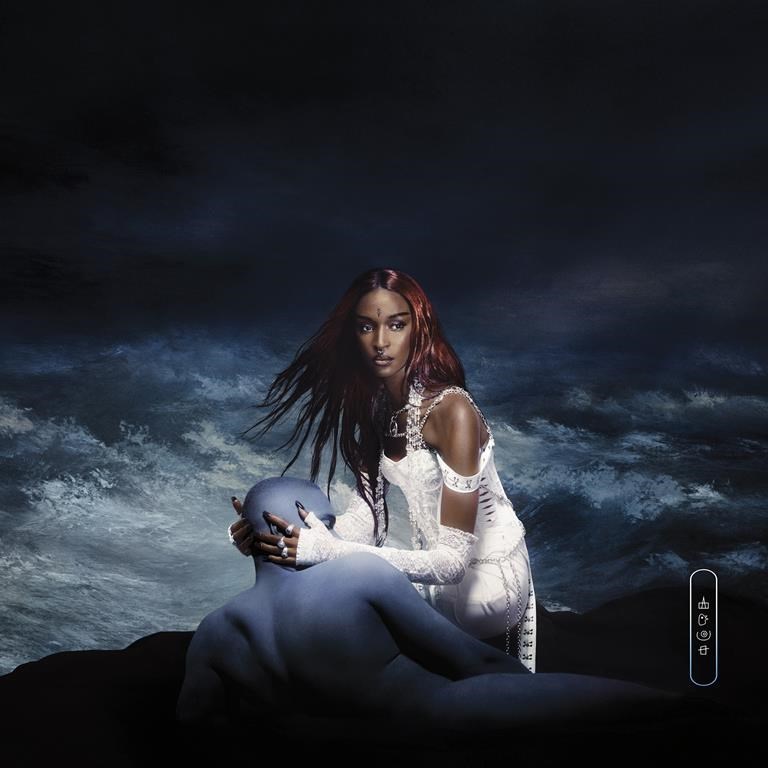âIOTA" By Lous and the Yakuza (Columbia Records/Sony Music)
Lous and the Yakuza has peeled back the pain and drama of her debut autobiographical album, "Gore,'' to reveal a space of love and playfulness on her follow-up, âIOTA.â The Congolese-Belgian singer and songwriter does not describe her music-making process as therapeutic as some may think, it is just her way of expressing herself. She shows how to do just that on her second album.
Her latest endeavor explores a fresh new tone as she delves into softer themes in her music. The songstress known to effortlessly weave through trap, R&B and pop allows her romantic and whimsical side to shine through in âIOTA,â giving us a richer picture of the artist set to skyrocket into international stardom.
Born Marie-Pierra Kakoma, the captivating performer behind Lous and the Yakuza has such a strong vision for herself and her music that she even has her own symbol: two hands being raised to the sky, which she paints on herself. She hints at the symbol in her opening song on the album, âCielâ meaning sky, where she sings about spirituality with whispery vocals and soothing harmonies. The album is driven by love. Kakoma longingly sings of her love as a treasure in the pop song âTrésorâ and includes a cinematic ballad that could play during a montage of a love story in an indie French film.
Kakoma sets her ode to love in an anime dreamworld. Kakoma is a longtime anime and manga fan, and she happily talks about her . For "IOTA," Kokoma drew inspiration from the works of anime greats like Studio Ghibli and "Paprika" director Satoshi Kon. The a song about living with lifeâs problems, is her take on âMy Neighbour Totoroâ and âSpirited Away.â
Kakoma is not shy about sharing what she has overcome to get to where she is today. Kakoma fled war in Congo at age 4 before moving to Belgium and later dealt with homelessness in her early days as an artist. Now, the Louis Vuitton museâs French songs have transcended language on the music charts with millions of streams.
Kakomaâs love of Japanese culture reaches farther than anime and manga. It's in her name. The name Lous is an anagram for âsoul," and Yakuza comes â not for the Japan-based crime syndicate â from the word for âloser.â She has said she wanted Yakuza to be her group name to give credit to those working behind the scenes to support her.
One of her longtime friends, Congolese-Belgian Damso, is featured on the album in âLubie.â In the almost lullaby-like song, Kakoma sings âI want to tell you I love youâ and Damso duets her. She also features French rapper Benjamin Epps in her song âStopâ that opens with a strong flow of French rap and a hard synth build.
The song is followed by âInterpol,â where Kakoma sings that her âfeelings are her instruments.â Itâs with those instruments that she draws us all the more into her Lous and the Yakuza universe.
___
For more AP Music reviews, visit: .
Beatrice Dupuy (), The Associated Press


